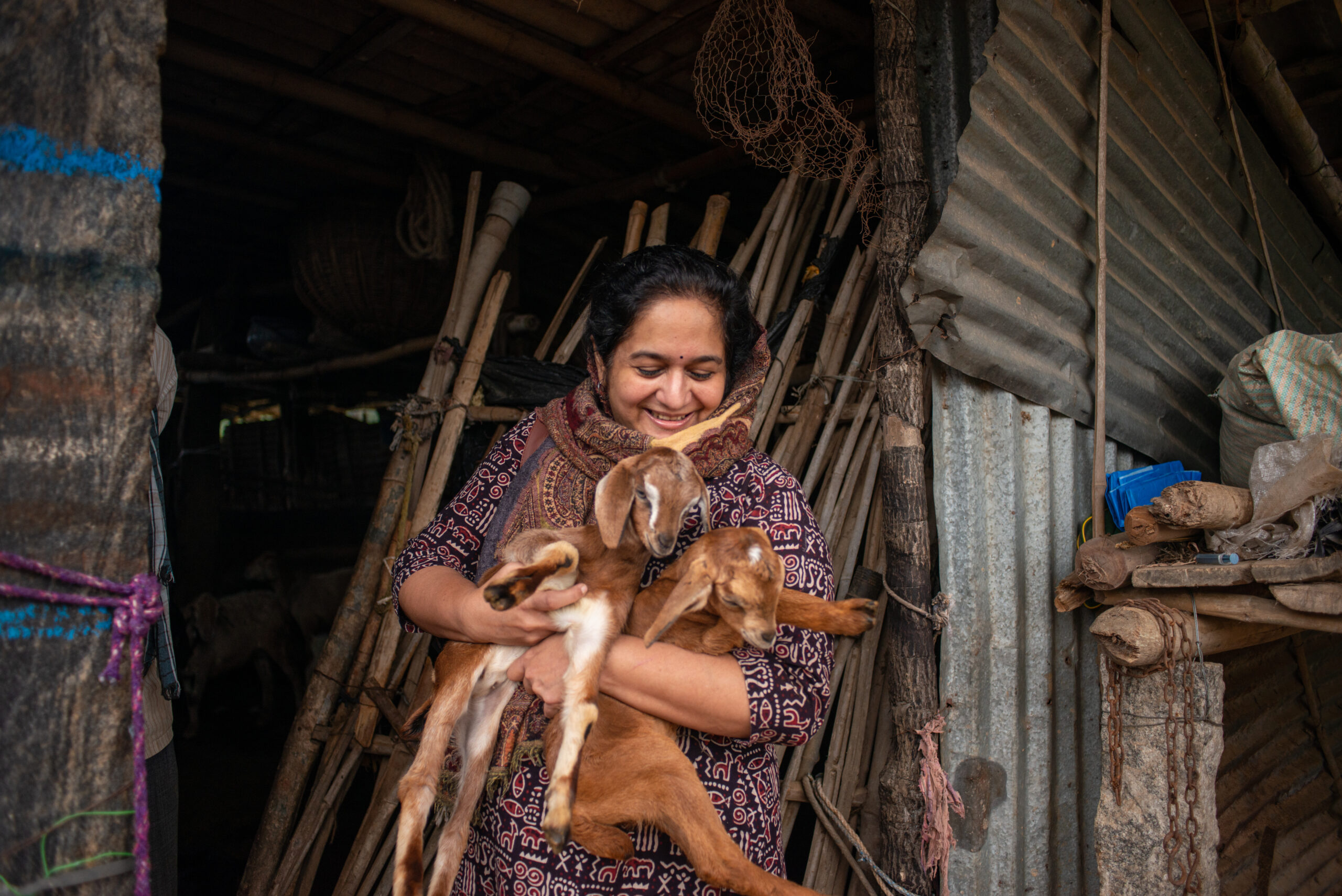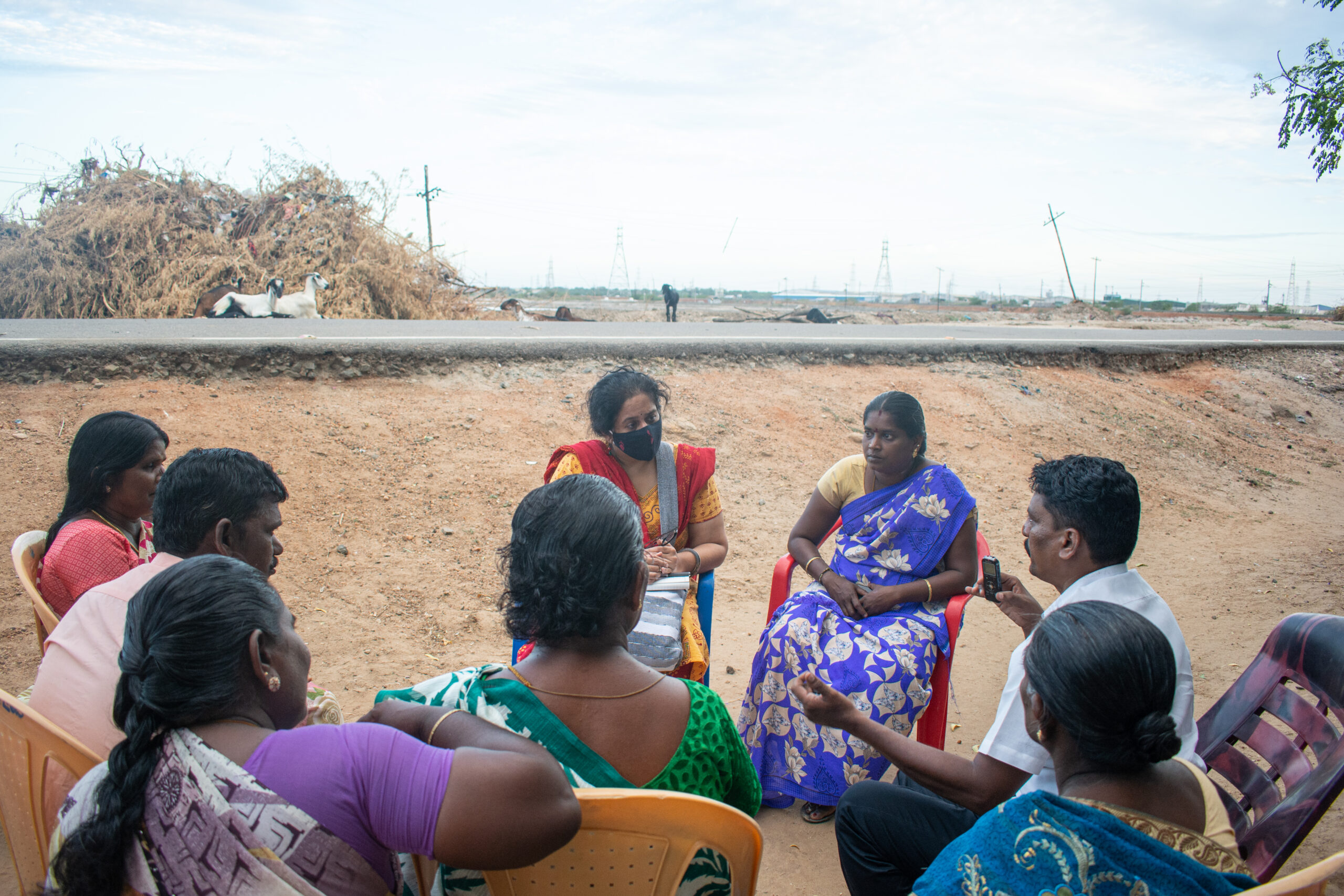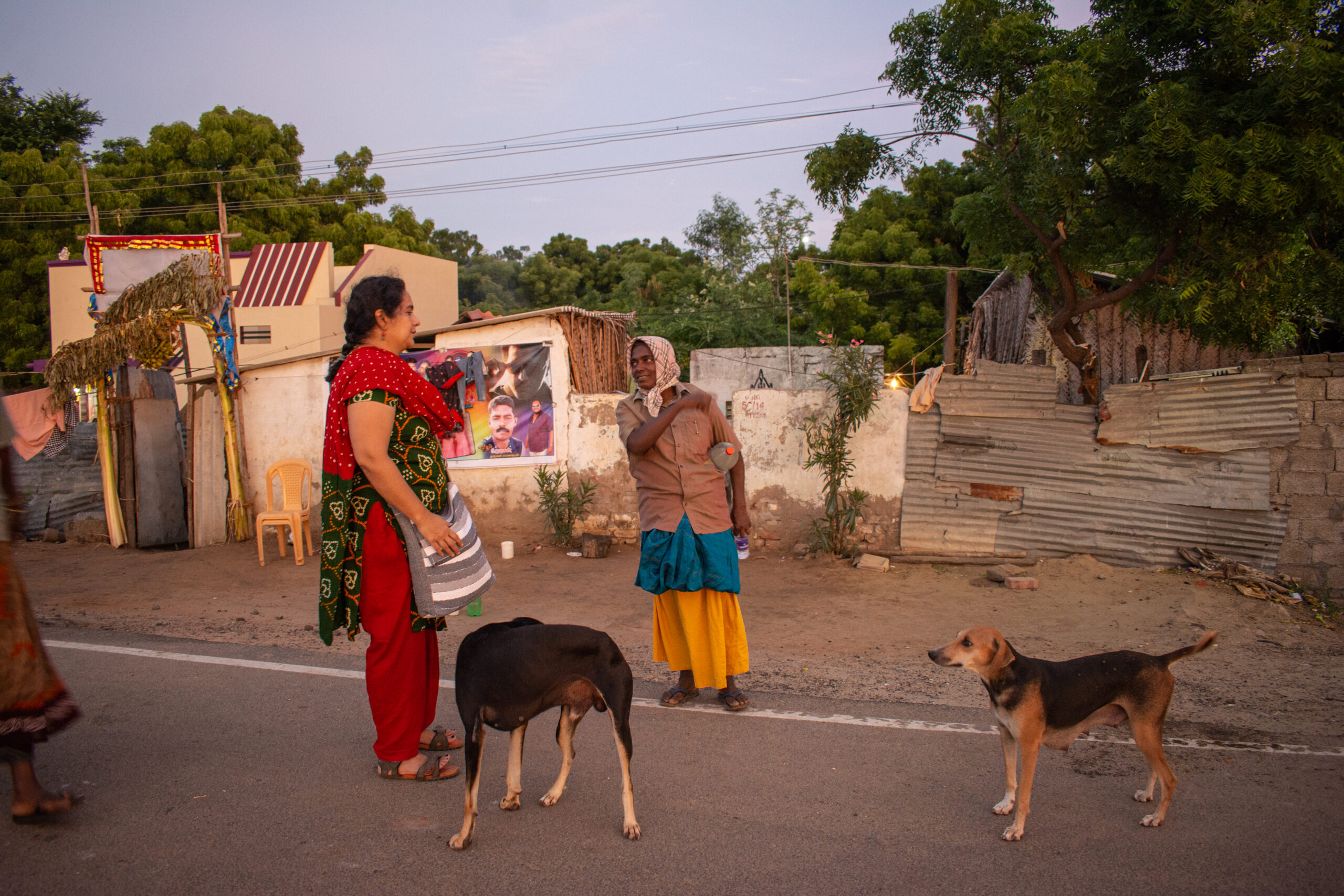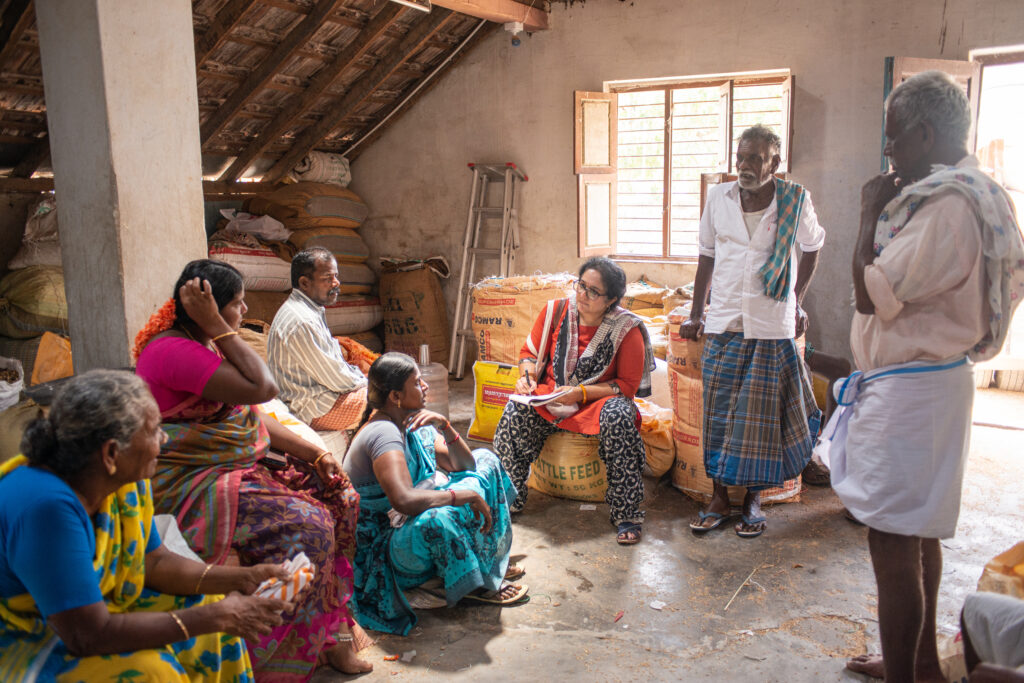Recently awarded the ‘Uzhavar Award for Best Agricultural Journalist’, Aparna Karthikeyan has been succinctly documenting stories on the life and livelihood of farmers from rural Tamil Nadu.
Through her reportage, Aparna Karthikeyan has particularly highlighted the contribution of women farmers. With many interesting facets to her life including her love for pets, Karthikeyan also authors children’s books, and contributes to media outlets, including The Hindu and People’s Archive of Rural India.
“I consider my job to be that of a witness and a storyteller, to take stories of these people as honestly and sensitively as possible to the audience. Whether it’s online or print publication one must remember that the written word is sacrosanct,” Karthikeyan told in a detailed interview with The Voices. Excerpts below:
So how did your journey in journalism begin?
My journey began nearly 20 years ago when I was living abroad. Travel writing was the niche I explored then; my child was young and I could manage writing around her schedule. However, I started writing more regularly only when I returned to India in 2011. My first stint was with The Hindu, I wrote a column about the everyday lives of common people in cities. The next leg of my journey began with a fan mail that I wrote to senior journalist P.Sainath after reading about a woman farmer of Maharashtra. He invited me to join PARI (People’s Archive of Rural India), and I chose rural Tamil Nadu because I was proficient in Tamil.
Was that the beginning of telling farmers’ stories?
While covering rural Tamil Nadu I tried to look into the interconnection of agrarian life, livelihood and culture. I found that it is the skillset of people in the rural areas that not only serves as the backbone of their own livelihood but also of our economy. Over the years, I have built up my work around that. The first farmer I met and interviewed is Chandra Subramanyam. I also wrote a book on her later – ‘No Nonsense Nandini’. I kept in touch with Chandra and her mother, and I still follow their journey.

Transitioning from urban to rural, what was the most significant change in your approach?
One major hurdle is that people will not speak to you readily the first time. You need to establish your credentials, tell them about your work, and it is the second or third time that you can have a conversation where they open up. Women typically do not have time to sit and talk because they are overladen with work and duties, having to manage the farm as well as the house.
When I had to speak to women, I would visit their house a few times, because otherwise it was mostly men who would answer questions. It was not possible to just follow them into the kitchen, though there have been times when I did that too. Even then, chances are they may find it difficult to speak candidly. Because their time is policed in a typical patriarchal setup, whether at the hands of the husband or the elders of the family. So, getting hold of women’s stories has been quite challenging, especially in comparison to when reporting in cities.
How do you work towards developing a connection with your subjects?
When I approach people with questions, I think somewhere I have to question myself as well. One has to be mindful while framing the questions, and fine-tuning them is a continuous process, making changes in how you approach people. What truly works and something that I always do, is revisiting people, showing them your previous stories with a lot of honesty and sensitivity. That gradually builds trust. Sometimes they have read about you or heard your story on social media, which too is helpful.


Over the period of your documentation of rural livelihoods, what changes have you observed in the lives of farmers, especially women farmers?
I have worked with farmers for nearly 10 years, which is a rather small blip in time to mark any significant difference. However, what I have observed is that climate change is becoming even more a pressing issue. In every interaction, the first topic to come up are the extreme weather conditions. Either too much rainfall or drought-like conditions. It definitely is one aspect that has become more severe in the past few years in my view.
In addition, as far as people’s life situations are concerned, again, a decade is not a sufficient time, it’s only a gap of one census. Having said that, because I tracked individual farmers and their lives, few things I have been able to pick. For instance, time-to-time farmers switch from one crop to another. From vegetables to flowers, from flower to another. Reason being, viability of soil, and difference in the everyday revenue. These are some short-term changes I have observed.
How do you view your experience as an agricultural journalist so far, working on these stories, bringing them to a wider audience?
My experience has been one of abundant learning. While I do read up on the subject of my article beforehand, the history and geography associated, because not doing that would be disrespectful. However, when it comes to the people involved, you learn everything on the field. I have been overwhelmed by the generosity and kindness of the people I have met. When I interview someone, more often than not, they seem to be carrying an understanding that life is not going to change dramatically for them by telling me their story, but they still willingly share it. They simply want to be heard, as they feel invisible otherwise. We know them as farmers and nothing much beyond that. Interestingly, when we say farmer, the image that first comes to our mind is that of a man. Most of the articles on agriculture and farmers’ tensions carry a picture of a man. However, almost always you see women doing majority of the labour intensive work on fields, be it removing weeds or planting paddy. Therefore, these are things that you start questioning having worked enough in this field.


Share with us some key takeaways – points of learning for young journalists looking to take a similar path.
I consider my job to be that of a witness and a storyteller, to take stories of these people as honestly and sensitively as possible to the audience. In addition, working with them has made me highly aware of my privileges. I have met people who face discrimination on multiple levels like class, caste, gender, and yet they stand strong with determination and grit. It has inspired me to take my work further with a lot of sincerity and to the best of my abilities, so that the person who tells me their story does not for a minute flinch their face when reading it.
While writing, I always check with them before putting out sensitive details (names of others etc.) It can be easy for me as a reporter to transcribe as is, but some information can land the person in a tight spot. In addition, I would not want to get anyone into trouble because it makes for an interesting headline. Therefore, I remain clear about the consent of the concerned person, and it is something that I have learnt over a period while doing these stories.
You mentioned about women’s work being under-appreciated. There is also the issue of land holding or land title rarely being in women’s name. What has your observation been in those regards?
In general, if you look at hierarchies of skill, labour and payment, you will notice women often take the back seat. In farming particularly, wherever money or business operations are involved, men take the charge. Men predominantly operate most of the larger markets or trading places.

Talking about land titles, the advantage of having the land in your name is that you can make independent decisions for that land. For instance, whether to leave it fallow, or what you cultivate on that land, or when to sell it, etc. Empowered women or those in collectives can indeed have the agency to make decisions in these domains, but they are the minority. Mostly, the men are in-charge. This is difficult to change because the differential is huge, only 13% of the farmland is owned by women whereas they do more than 70% of the work. The gap is huge and it will take a while to arrive at a uniform scenario.
Lastly, what are your thoughts on the advent of digital media, the positive and the negatives?
Many positives obviously, like it has led to easy access as almost everyone has a phone today. I find digital media is all-pervasive, that’s where the world is heading and one has to ride that bull as well. However, if we talk about it in comparison to books, does it mark the end of books? I do not think so. Stories are universal and books are one way of consuming a story, digital is another. In addition, human need for stories is universal. We do not dream in graphs or presentations, we dream in stories, and that is never going to go out of vogue. Only the medium is changing. If you take movies for instance, a movie comes from stories, a script that somebody has written. The script has not written out itself, we have not gotten there yet, maybe someday that too might happen. Therefore, I believe the art of storytelling will not die out, it is just the question of how it evolves and one has to be ready for that change.
Edited By: Arunima Maharshi

